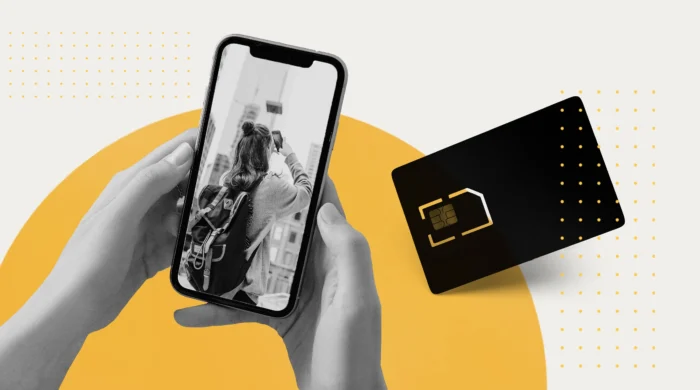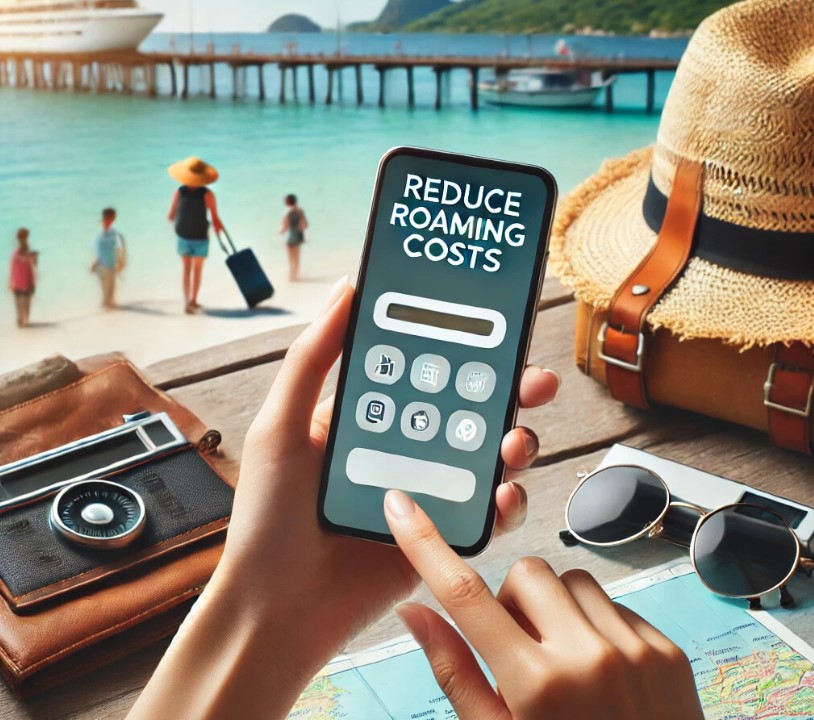Traveling often brings the excitement of new experiences, but the costs associated with roaming can become a burden if not managed carefully. When moving from one country to another, staying connected without accumulating unnecessary expenses is possible with some simple but effective strategies. For those who plan, the benefits extend beyond lower costs and can include improved network performance and flexibility. Let’s break down the most efficient ways to manage costs.
Key Points:
- Using local SIM cards reduces costs significantly.
- Prepaid plans can offer substantial savings over traditional roaming options.
- Wi-Fi calling and messaging apps are essential for cost control.
- Unlocking your phone opens up flexibility with network providers.
- Manage data usage to avoid unexpected bills.
Unlock Your Phone Before Traveling

Unlocking your phone allows you to switch to local SIM cards or take advantage of lower-cost international plans. Without unlocking, you may be tied to your home network, which can make it impossible to avoid roaming fees.
For those using popular devices like Samsung, for your samsung unlock consider using services such as Sim-Unlock. This service provides a fully automated system, reducing the waiting time for unlock codes, giving travelers more flexibility. The process is quick, and many have found it a convenient solution. Unlocking allows for wider access to networks, meaning more control over costs.
Use Local SIM Cards
Upon arrival at your destination, purchase a SIM from a local carrier. This method immediately puts you on a local network with local pricing, avoiding the inflated costs of roaming through your home provider. It’s ideal for extended stays. Airports and city centers usually offer kiosks where SIM cards are sold. The prices are competitive, and the data bundles can be tailored to specific needs.
Ensure that your phone is unlocked to switch to a local SIM without complications. In many regions, the quality of the network service might even surpass what a roaming arrangement could offer.
Advantages of Using Local SIM Cards

- Lower call and data rates
- Tailored data plans
- Better network coverage locally
- No additional roaming charges
- Flexibility to change providers
Prepaid International SIM Cards
This can be a solution when visiting multiple countries. Instead of buying new SIM cards in each country, prepaid cards from global providers offer coverage in many regions. With no long-term contract, travelers can purchase data bundles tailored to their stay. Rates tend to be cheaper than standard roaming, and there’s no risk of overuse since they’re prepaid.
Some companies provide cards specifically designed for international use. They function across borders, and they’re easy to recharge online. For people traveling frequently, this solution eliminates the hassle of searching for a new local SIM card every time.
Rely on Wi-Fi Networks

When available, Wi-Fi networks provide free or low-cost alternatives for communication. Hotels, restaurants, and coffee shops often provide access for their customers, which can be invaluable for checking emails, messaging, and even making calls without using cellular networks. Many messaging apps allow calls and texts over Wi-Fi, bypassing roaming entirely.
Using Wi-Fi for larger data consumption, like streaming videos or downloading files, also ensures that cellular data usage remains minimal. Travelers can even download maps and other necessary tools while connected to Wi-Fi, further reducing data usage while navigating unfamiliar areas.
A cautious approach would include turning off mobile data entirely when relying on Wi-Fi, which prevents apps from consuming data in the background without your knowledge.
Adjust Data Usage Settings
Controlling how your device uses data can make a huge difference. Many phones allow users to monitor data usage and set limits or warnings when they approach a threshold. Turning off automatic updates for apps, disabling push notifications, and restricting background data usage are easy steps to ensure that only essential services consume data.
You can reduce data consumption significantly by downloading offline content ahead of time. Music playlists, maps, and travel guides can be stored locally, eliminating the need to use cellular data when you’re out exploring.
Also, consider using apps that compress data, making browsing and social media lighter on data usage. VPNs, while helpful for security, can sometimes increase data use, so it’s important to evaluate whether the protection is necessary for specific activities.
Use Roaming Packages From Your Carrier

Most mobile providers offer specialized packages that reduce the cost of roaming. These can include day passes or monthly bundles that offer a certain amount of data, minutes, and texts at a fixed price. It’s worth comparing these offers to see if they align with the length of your trip and your needs. Often, these packages can be activated in advance or even mid-trip via your provider’s app or website.
It’s important to read the fine print. While some packages claim to be unlimited, they may reduce speeds after reaching a certain limit or restrict data usage in certain regions. Even if you have an unlimited plan at home, the roaming benefits might not extend internationally.
FAQ
1. What happens if I don’t unlock my phone before traveling?
You’ll remain locked to your home network, limiting your ability to switch to a local SIM card and leading to higher roaming costs.
2. Are Wi-Fi networks secure enough for financial transactions abroad?
Public Wi-Fi can be insecure, so avoid accessing sensitive information. Use a VPN if you must conduct any financial transactions.
3. How much data should I expect to use per day on vacation?
The average person might use 100MB to 500MB per day, depending on activities such as GPS navigation, messaging, and light browsing.
4. Can I bring a portable Wi-Fi device instead of switching SIM cards?
Yes, portable Wi-Fi devices provide an alternative, allowing you to connect multiple devices to a single data plan. They can be rented or purchased.
5. Is it cheaper to buy a local SIM at the airport or in the city?
City prices are often better than airport prices, where convenience often comes at a premium.
In conclusion, lowering roaming costs requires preparation. Unlocking your phone, exploring local SIM options, leveraging Wi-Fi, and using prepaid international SIM cards are effective strategies. Making these choices before the trip ensures a hassle-free experience while staying connected without breaking the bank.







